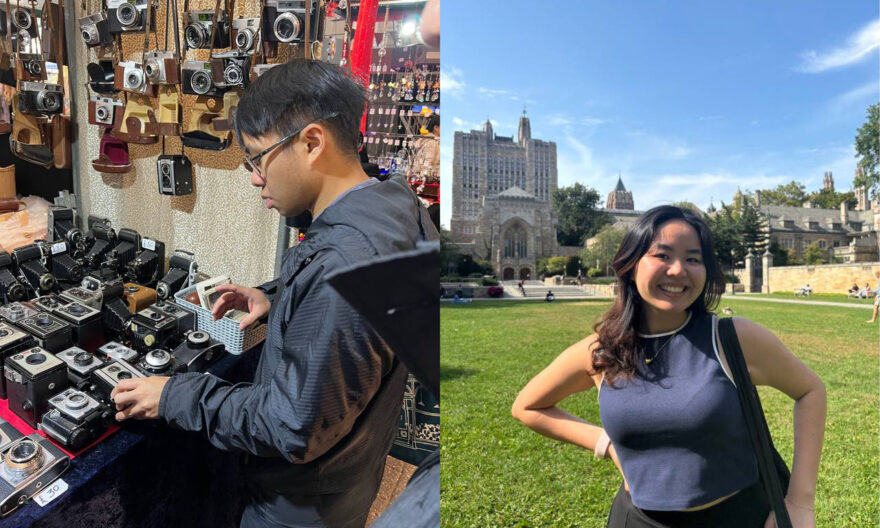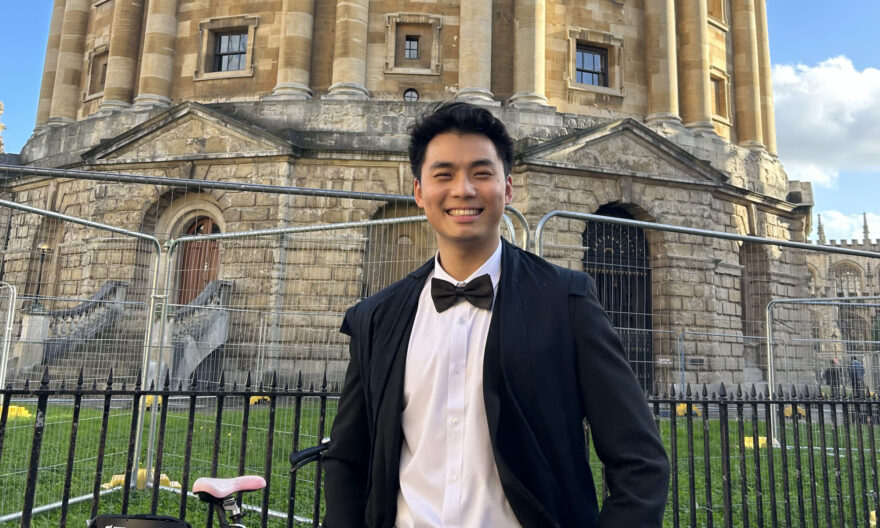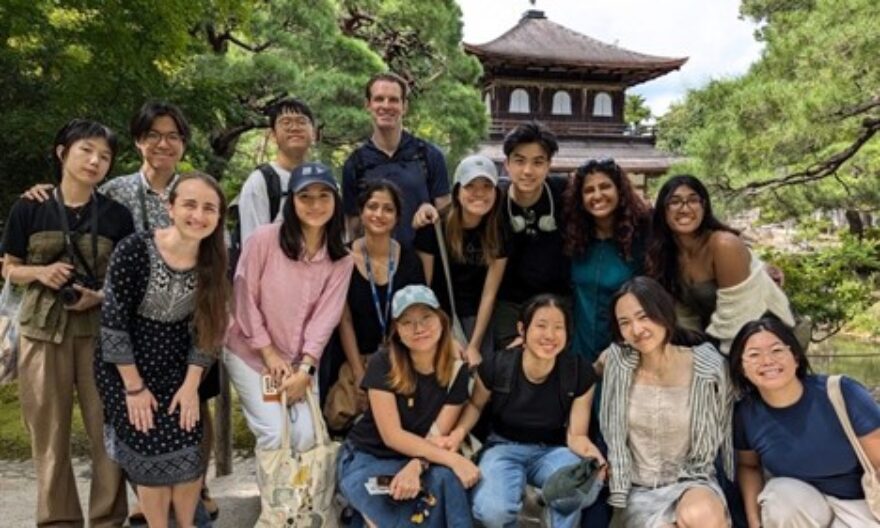Yale-NUS students contribute to faculty work as research assistants
Students take on Research Assistant positions to work directly with Yale-NUS faculty and contribute to their research through various avenues
At Yale-NUS College, learning is never one-way. At the College, students foster close relationships with faculty members, and at times are given the opportunity to contribute directly to their professors’ research. Through taking on research assistant appointments, students get hands-on experience in the field of research and academic work.
One such opportunity comes from the Summer Research Programme (SRP), a flagship initiative by the Centre for International & Professional Experience (CIPE) that matches interested students to faculty research projects during the three-month-long summer break.
 Kenisha Alicia Sumarno (Class of 2023), Image provided by Kenisha Alicia (Alice).
Kenisha Alicia Sumarno (Class of 2023), Image provided by Kenisha Alicia (Alice).
For Kenisha Alicia Sumarno (Class of 2023), the SRP allowed her to work with Professor of Humanities (History) Naoko Shimazu. For her appointment, Kenisha Alicia (Alice) helped translate and compile sources for Professor Shimazu’s research on the Bandung Conference of 1955. As the first gathering of Asian and African nations, the Bandung Conference is a historically significant case study. Prof Shimazu’s work expounds on the concept of “diplomacy as theatre”, which asserts that the negotiations that happen behind the scenes are just as important as the public spectacle of conferences.
Alice recounted spending most of her time poring over microfilm at the ISEAS-Yusof Ishak library on newspaper coverage of the conference—both in Indonesia and the United States.
The SRP is merely one avenue that matches eager student researchers with faculty members. In Yale-NUS College’s small-class environment, these partnerships can also arise as an extension from the classroom.
For example, Suman Padhi (Class of 2025) started working with Associate Professor for Humanities (History) Emmanuel Mayer after he mentioned in class an available opportunity that fit their mutual interests.
Suman explained that for their research project, they worked to compare the wealth of the British Empire with the Roman Empire at both their peaks by examining the currency that was in exchange and minted during those years. Suman added, “I’m an economics student with an interest in classical languages, cultures, and antiquity in general, so [this research project] really aligned with my interests.”
For some students, their working relationship with their supervising faculty could develop beyond a single project.
 Jenelle Lee (Class of 2024). Image provided by Jenelle.
Jenelle Lee (Class of 2024). Image provided by Jenelle.
Jenelle Lee (Class of 2024) started working with Assistant Professor for Social Science (Environmental Studies) Anthony Medrano in her first year. Since then, Jenelle has had the opportunity to participate in multiple projects with , on topics as diverse as the ecological significance of goby fish in the Philippines, to the role of local scientists in the early days of Singapore’s Botanic Gardens.
Jenelle collaborated with Asst Prof Medrano on a project Singapore’s kelong fishing industry, a type of floating fish farms that originated in Southeast Asia. The project began as a conference paper, but progressed into a full-fledged journal article they are due to co-author.
The process gave Jenelle the opportunity to exchange ideas directly with established academics in the field, not the least when Asst Prof Medrano invited her to talk about her research in a webinar he hosted.
“It was really intimidating to share my research alongside professors and experts, but I’m very grateful that Asst Prof Medrano gave me this opportunity that allowed me to practise my presentation skills.”
Alice, Suman and Jenelle found that conducting research work under the guidance of experts was a fruitful learning opportunity. Not only were they able to get exposure to the rigour of academic research, they also received individualised attention to make sure they were equipped with the right tools for the challenge.
Said Jenelle, “I was a clueless freshman with limited academic writing skills when Asst Prof Medrano hired me as an Research Assistant. But he has patiently guided and taught me [skills relating to] academic writing and research which I continued to develop and improve upon in class.”
When asked about what advice they could share with other students, Suman encouraged interested students not to hesitate in reaching out. “I’d say the best thing to do is to first reach out to a professor you know well and whose work you are interested in, because often times they might be looking for someone too,” they suggested.
“For me it was definitely daunting at first, but it’s a rewarding experience both in terms of the money and experience you get.”
Alice also pointed to the role the College environment plays in facilitating these relationships. She remarked, “I think Yale-NUS is rare because it allows students to work in such close proximity to really accomplished faculty. I think a lot of students realise this and take full advantage of it.”




